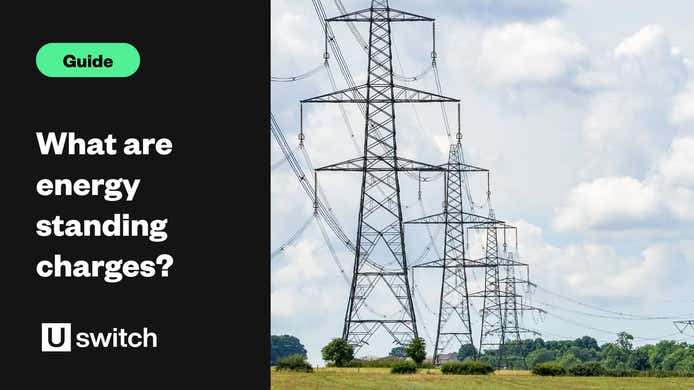What is a personal projection and how is it calculated?
Simply put, a personal projection is a calculation of your future energy costs over the next 12 months.
Personal projection calculations are based on your current energy plan's unit rates, including any known future price changes affecting that plan (such as a price cap change) and your energy usage.
It's important to take note of your personal projection when you run an energy comparison so you can make an informed decision about whether to switch to a new deal or not.
How your personal projection is calculated
When you run an energy comparison with Uswitch, you'll see your current plan detail presented at the top of the page like this:

The "estimated annual cost" is your personal projection. It's an estimation of how much you will spend on your energy over the next 12 months if this customer were to decide not to switch and instead roll onto a Standard Variable Tariff (SVT) when their deal ends. It's based on:
- estimated annual energy consumption using current deal rates
- the price cap rates for the period after your fixed deal ends.
(Exact price cap rates can only be included for a maximum of one price cap update - because the price cap is updated four times a year, we can't make a concrete estimate of what the rates might be until they've been confirmed by Ofgem and individual suppliers.)
Here, there are 260 days left on the user's fixed deal, so the annual cost is comprised of those 260 days and then 105 days on their supplier's standard variable tariff using estimated price cap rates.
Your estimated usage
If you don't provide exact usage figures, we will estimate how much you use based on the size of your property. These figures should roughly match the estimated projected annual consumption your supplier shows you in your energy statements. If they look incorrect, then you can manually edit them.
How are savings calculated?
Savings are then calculated by looking at the difference between the estimated annual cost of your current plan (based on latest price cap rates if you’re on a Standard Variable Tariff) and the plan you could switch to, using your estimated annual usage.
If you're ready to run an energy comparison, enter your postcode below to get started.

Run an energy comparison
Click here to compare energy prices and get started on your energy switch.




